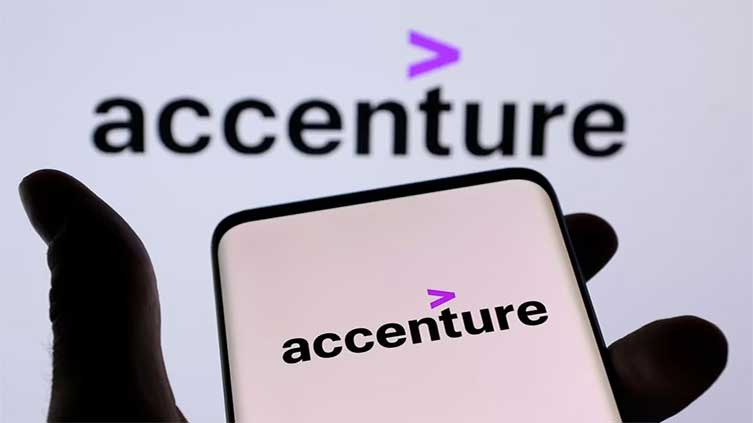Accenture signals more pain for IT industry with disappointing forecast

Technology
Accenture forecast current-quarter revenue in the range of $15.75 billion to $16.35 billion
(Reuters) - Accenture fanned concerns about dwindling IT spending on Thursday with a quarterly revenue forecast that was below Wall Street estimates, sending its shares down more than 5%.
CEO Julie Sweet said clients were "holding back on small deals" in the face of an uncertain economic outlook, mirroring remarks from Cognizant Technology Solutions last month.
Accenture forecast current-quarter revenue in the range of $15.75 billion to $16.35 billion. Analysts on average expect revenue of $16.35 billion, according to Refinitiv data.
The company blamed the weakness on its business catering to the tech, media and communications industries, which have sharply dialed back spending in recent months to cope with slowing growth. Revenue for that group fell 8% in the third quarter.
North America - Accenture's biggest market - also performed poorly in the March to May period, with revenue growth slowing there to a near three-year low of about 2%.
Indian outsourcing giant Tata Consultancy Services also said in April that a recovery in the U.S. had not materialized as expected and had, in fact, worsened.
More pain could be in store for IT companies as U.S. Federal Reserve Chairman Jerome Powell hinted on Wednesday at the likelihood of further interest rate hikes, after one of the most aggressive policy tightening cycles on record.
Cognizant stock was down 2.5% in early trading, while U.S. listed shares of Infosys fell 0.5%.
Overall, Accenture's revenue rose 3% in the third quarter to $16.56 billion, in line with estimates. Adjusted profit of $3.19 per share beat estimates of $3.04 per share.
Unlike other tech executives, Sweet said she does not expect generative AI to be a big growth driver next year, focusing instead on companies finishing their migrations to the cloud.
"We feel really good about the bigger (digital) transformational deals continuing next year because there's so much work to do," Sweet said.


